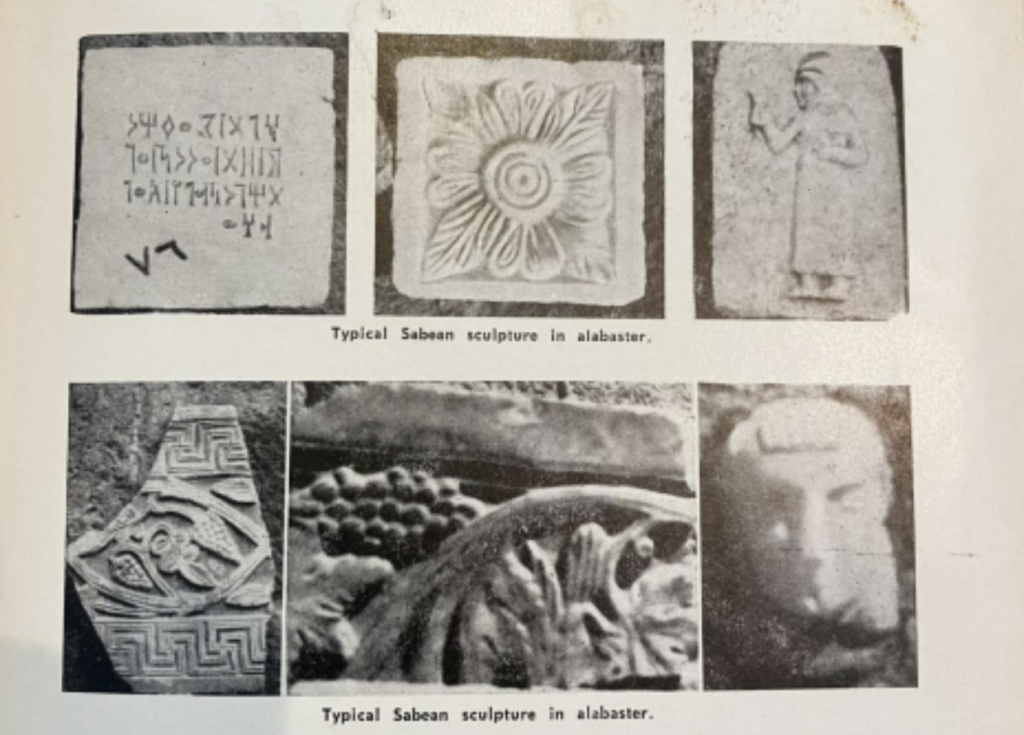Do You Know Enough About Yemen’s 7,000-year History and Culture?

By: Lujain Al-Khawi / Arab America Contributing Writer
Let us not skip over 7,000 years of Yemeni history when we discuss Yemen’s current sociopolitical climate. As a proud Yemeni-American, I am reminded of the glorious history of Yemen by family members whose scholarly work I will share in this article, along with some familial experiences.
My grandfather was a prolific historical scholar and worked in the Yemeni Secretariate of the second longest dynasty in the world after the Japanese (“Motuakklyyah Kingdom” est. 898 A.D.) before Yemen became a Republic in 1962 (Sharafaddin, 1961).
My grandmother was a quintessential Yemeni woman busy with domestic duties but loved publishing documented works on over 1,100 Sana’ani proverbs (Annonu, 1994).
Growing up in Sana’a, Yemen, was never boring. Although Sana’a is not a religious city for Muslims like Mecca, Medina, or Jerusalem, I think it has a spirituality to it like no other. When the sun sets every evening, the famous multi-colored, stained-glass windows scatter beautiful colors all over Old Sana’a, a UNESCO heritage site, and the bustling bazaars shut down in time
for the call to prayer. In many ways, Sana’a is a typical Arabian city, but it is home to the indigenous Arab tribes.
The biblical prophet Shem first came to Sana’a around 5,000 B.C. and established a community of direct descendants of Noah and later Ishmael through Abraham. Ancient Yemenite tribes delighted in the mountains and fertile valleys, as well as the direct connection of Asia to Africa by the Red Sea.
The Red Sea is special in many Yemenis’ hearts like mine. It was the first body of water I swam in at age one, where I had joyful memories of vacationing in Aden, a coastal town frequented by the city people of Sana’a.
Yemenis are proud of their historical ancestry and have organized themselves into different caste groups depending on lineage. While there was frequent nepotism during the Motuakklyyah Dynasty, there has never been a written document discriminating against Yemenis of color or religion. Yemenis called for equality amongst its citizens during the 1991 Unification Constitution when North and South Yemen united in 1990. The pre-amended constitution urged for equality for all citizens before the law and no discrimination between them based on color, gender, or even religion.
Yemenis are also known for their kindness, bravery, and the famous “Arab hospitality,” which is not second to Southern hospitality in the U.S. Originally, “Arab hospitality” served the economy well during ancient times when caravans from different parts of the world crossed Bab al-Yemen (“the main gate of the city of Sana’a”) to purchase the native Mocha coffee beans, 20 varieties of
grapes, unique salty fish from the Red Sea’s Tihama River, and glorious dates from the eastern deserts.
Yemenis and Religion
Most, but not all, Yemenis are Muslims and different sects within Islam have lived peacefully amongst each other for centuries. People from Sana’a have a famous slogan: “Placate the perpetrator with a third of your wealth” (Annonu, 1994, p. 89).
Yemen also has an indigenous Jewish population that has never experienced pogroms while living in Yemen. During the widespread rise of antisemitism in the nineteenth and twentieth centuries, when Jews in the European continent were put into ghettos, Jews in Yemen were a protected minority group.
My grandfather’s house was purchased from Yemenite Jews who left for the “Jewish State” between 1950-1970, and many reported back discrimination experienced outside of Yemen due to their dark skin complexion.
There are also Hindu temples in Yemen that are still erect. Contrary to what many critics of Yemen claim, without ever visiting the country, many Yemenis see it as their obligation to protect religious buildings, whether they be mosques, synagogues, or temples.
Women in Yemen
Yemeni culture is more traditional regarding gender norms than other countries in the West or other parts of the Arab world. Women and men are separated outside of work settings, not due to sexism, but to persevere lineages under the spiritual institution of marriage.
Surprisingly to many Westerners, Yemeni women have been able to inherit, initiate divorce, and work since the seventh century A.D., well before women from Anglo-Saxon nations could in the European continent.
Yemenis have taken an extra step within constitutional documentation to ensure these rights in Article 6 of the 1991 Constitution, affirming its adherence to the UN Charter and Universal Declaration of Human Rights.
Ancient Yemenite Civilizations
In American high school classes, we only learned of the Greek and Roman civilizations. Still, we never heard about the ancient Minean civilization of Yemen (1400-850 B.C.) or the Sabean Kingdom (850-115 B.C.) (Sharafaddin, 1961, p. 18).
Marib City was the Sabean Kingdom’s capital and the center of administrative, commercial, and political life. In the ninth century B.C., the first king of Sheba erected the marble Dam of Marib, which distributed water from the Balag Mountain into the city (Sharafaddin, 1961, p. 37).
You may have heard of the Queen of Sheba, but many historians disagree about her geographical location or even existence.
Nonetheless, ancient Yemenites built a temple for her called “Mahram Bilquis” over 2700 years ago, and many of its pillars are still erect in Marib and just last year considered a UNESCO World Heritage List.
Ancient Sabeans also had their language, and marble inscriptions have been excavated from the Sirwah Temple in Marib and are presumed to originate from as long ago as 500 B.C. (Sharafaddin, 1961, p. 35).
Why is Yemen called the Cemetery of the Invaders?
The infamous British Empire tried to colonize every part of the world, but it never succeeded in northern Yemen. Aden became the “British Eastern Protectorate” in the nineteenth century, but northern Yemenite cities resisted British rule due to their belief in self-determination.
Adenites later overthrew the British, who called Aden “the port of inhospitable shores.” While Yemen is historically famous for it “Arab generosity,” it does not extend to settler-colonial occupation.
In fact, the first group who failed to invade Yemen were the Romans who faced a humiliating defeat against the indigenous Yemenite tribes who were more familiar with the mountainous terrain during the first century B.C.
Fast forward to three attempted Ottoman invasions in 1515 and later in 1564 A.D. after 70 years of battling. Finally, the third invasion began in 1848 A.D. and ended in 1918 A.D. when the Turks were finally expelled by the “Treaty of Daan” (Sharafaddin, 1961, p. 62).
What are Yemenis in the U.S. like?
Yemenis who came to the U.S. initially came as students or workers, prominently as auto factory workers in Detroit in the early 1900s. Even though Yemenis have a 7,000-year history, we are also proud to be Americans. One Yemeni-American is currently the majority leader of Michigan’s House of Representatives. His father was a self-made auto worker who enabled his family to lead the American dream proudly.
But like many groups in the U.S. who have dual citizenship, some Yemeni-Americans have been disappointed with the American foreign policy regarding Yemen. It started with the American supply of weaponry to the Saudi-led coalition against Yemen in 2014 and later the attempted occupation of Socotra Island by the Emirates in 2018.
Luckily, Yemenis still rule both Yemen and Socotra Island. Still, even Secretary of State Antony Blinken and National Security Adviser Jake Sullivan expressed regret for the war on Yemen in a 2018 letter calling for its end (Keating, 2024).
Yemen could thrive if it became an ally to the U.S. If Yemenis see stability, economy, and self-determination in their homeland, then Yemen may reinstall its historic days of “Arabia Felix.” Americans can benefit from its untapped trade and tourism industries.
References:
Sharafaddin, A. H. (1961). Yemen: Arabia Felix. Taiz: Daily American.
Annonu, A.M. (1994). A Collection and Chronology of Proverbs from Sana’a. Sana’a: Dar Al Kalimah.
Keating, J. (2024, March 9). The Houthis have the world’s attention — and they won’t give it up. Vox Media, LLC. Retrieved from https://www.vox.com/world-politics/24094638/houthis red-sea-yemen-gaza-israel.
The views and opinions expressed in this article are those of the author and do not necessarily reflect the position of Arab America.
The reproduction of this article is permissible with proper credit to Arab America and the author.
Check out the Arab America Blog Here!









